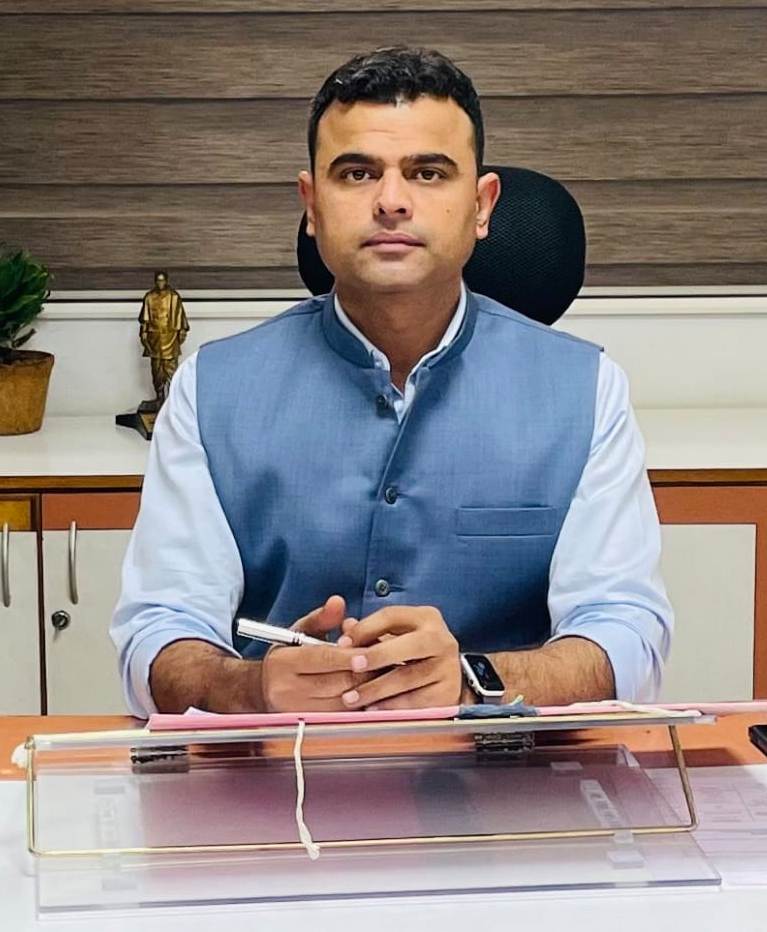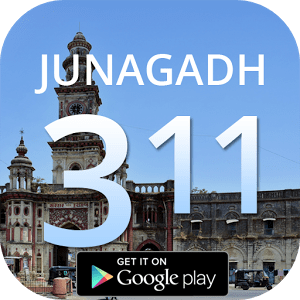We have many historical cities in Gujarat and other states of India, but Junagadh is unique among them, as it comprises of historical monuments starting from the very ancient age (500 BC) till the most recent history of partition of India in 1947 AD. This city, as the name suggests, is a city of old fort. It has a very old history and, as a result, there are many historical monuments worth visiting in this city, Junagadh.
In olden times, the city was known by various names like “Raivatachal”, “Raivatnagar”, “Revant”, “Manipur”, “Chandraketapur”, “Puratanpur”, “Pratappur”, “Narendrapur”, “Girinagar”, “Karan Kunj”, “Jirna Durg”, “Mustafabad” and finally the present name “Junagadh” was given by the British Government in 1820AD.
The city has acquired an important place in tourist map of Gujarat. Everyday thousands of visitors / tourists visit city for religious, entertainment and educational excursions. Two main festivals celebrated here are “Parikrama” (Held in October-November during the period of five days concluding on the full-moon day of Kartik Month) and “Maha Shivratri” (Held in February-March on the No-Moon-day of Magha Month) every year.
The importance of these festivals is not only up to local level but has also spread over national and international level. NagaBawa’s or Naked Sages (that are generally seen only during Kumbh Mela’s) come to take part in these festivals from all over India. Every year on an average more than one Million people visit Junagadh during these two festivals only.
he last Babi Nawab named Mahabatkhanji III, decided to join Pakistan on getting independence from British Rule in 1947. But the majority of population being Hindu, the people resorted to revolt against his decision and finally they, led by Mr. Shamaldas Gandhi in an Army called “Aarzi Hukumat” (Temporary Government), attacked and captured the palace and fort by hoisting Indian Flag. The Nawab had to run away to Pakistan in order to save his life. Since then the city is a part of Gujarat State of Independent India.
The Aarzi Hukumat (How Junagadh became part of India)
During the period spanning the independence and partition of India and Pakistan in 1947, the 565 princely states that existed under British rule were given a choice of acceding to either India or Pakistan. Although the states were theoretically free to choose, Mountbatten stated that “geographic compulsions” meant that most of them must choose India. In effect, Mountbatten took the position that only states that shared a common border with Pakistan could choose to accede to it.
On September 15, 1947, Nawab Mohammad Mahabat Khanji III of Junagadh, a princely state located on the south-western end of Gujarat and having no common border with Pakistan, chose to accede to Pakistan ignoring Mountbatten’s views, arguing that Junagadh adjoined Pakistan by sea. The rulers of two states that were subject to the suzerainty of Junagadh — Mangrol and Babariawad — reacted by declaring their independence from Junagadh and acceding to India. In response, the nawab of Junagadh militarily occupied the two states. Rulers of the other neighbouring states reacted angrily, sending troops to the Junagadh frontier, and appealed to the Government of India for assistance. A group of Junagadhi people, led by Samaldas Gandhi, formed a government-in-exile, the Aarzi Hukumat (“temporary government”).
India believed that if Junagadh was permitted to accede to Pakistan, communal tension already simmering in Gujarat would worsen, and refused to accept the Nawab’s choice of accession. The government pointed out that the state was 80% Hindu, and called for a plebiscite to decide the question of accession. India cut off supplies of fuel and coal to Junagadh, severed air and postal links, sent troops to the frontier, and occupied the principaliites of Mangrol and Babariawad that had acceded to India.
Pakistan agreed to discuss a plebiscite, subject to the withdrawal of Indian troops, a condition India rejected. On 26 October, the Nawab and his family fled to Pakistan following clashes with Indian troops. Before leaving, the Nawab had emptied the state treasury of its cash and securities.
On 7 November, Junagadh’s court, facing collapse, invited the Government of India to take over the State’s administration. The Dewan of Junagadh, Sir Shah Nawaz Bhutto, the father of the more famous Zulfiqar Ali Bhutto, and Grand Father of Benzir Bhutto, decided to invite the Government of India to intervene. Bhutto wrote a letter to Mr. Buch, the Regional Commissioner of Saurashtra in the Government of India inviting India to Intervene. The Government of Pakistan protested, saying that since the Nawab had chosen to accede to Pakistan, the Dewan had no authority to negotiate a settlement with India. Also, if India could acquire Kashmir (with an overwhelming Muslim majority) because its ruler had decided to accede to India, then Pakistan could claim Junagadh.
The government of India rejected the protests of Pakistan and accepted the invitation of the Dewan to intervene. A plebiscite was conducted in February 1948, which went almost unanimously in favour of accession to India. Junagadh became a part of the Indian state of Saurashtra until November 1, 1956, when Saurashtra became part of Bombay state. In 1960, Bombay state was split into the linguistic states of Maharashtra and Gujarat, in which Junagadh was located and since then Junagadh is part of Gujarat.




